Qex̲ te swas sxélcha. means ‘HE catches a lot.’ or ‘HIS catch is plentiful.’ Literally it means ‘Much (is) his own catch.’
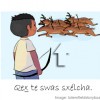

Qex̲ te swas sxélcha. means ‘HE catches a lot.’ or ‘HIS catch is plentiful.’ Literally it means ‘Much (is) his own catch.’
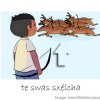
Te swas sxélcha means ‘his own catch’. Another translation would be ‘HIS catch’, emphasizing ‘his’. Literally it means ‘the own-of (him) catch’, where ‘him’ is understood from context’.
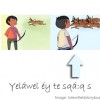
Yeléwel éy te sqá:qs means ‘His littler brother is better’ . Literally: ‘More good (is) the younger.sibling of (him)’).
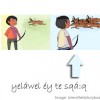
Yeléwel éy te sqá:q means ‘The littler brother is better’. Literally it translates as:’the younger sibling (is) more good’).
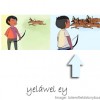
Yeléwel ey means ‘better’ (literally ‘more good’, or ‘surpassingly good’).
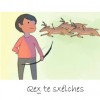
Qex̲ te sxélches means ‘He catches a lot’ . Literally it means ‘Much (is) his catch.’

X̲ is the Halq’eméylem ‘hard-x’ sound. You make this sound by creating heavy friction with the back of your tongue against your uvula (the thing that dangles at the back of your throat). Linguists call this sound a ‘uvular fricative’.
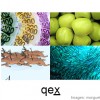
Qex̲ is the Halq’eméylem word for ‘much’. You can also use qex̲ to say ‘many’, or ‘a lot’.

Te sxélches means’his catch’ (i.e. in hunting), or ‘what he caught’.
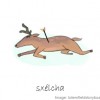
Sxélcha means ‘catch’, as in ‘what you caught when hunting’. You can use sxélcha to to talk about the body of an animal, a bird, or a fish.
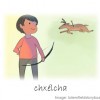
Chxélcha means ‘to catch game’, as in hunting. You can use this word to talk about catching animals, birds, or fish.

Schechewót te John te lámes há:we means’John is skilled at hunting’. A literal translation would be ‘John is smart/skilled if/when he goes hunting’.
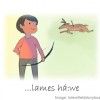
Lámes há:we means ‘…if/when he goes hunting’.
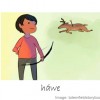
Háwe is the Halq’eméylem word for ‘to hunt’.

Schechewót te John means ‘John is skilled’, or ‘John is smart’. Literally it means ‘Smart/skilled (is) the John’.

Schewót means ‘smart’, ‘skilled’, or ‘good at’.
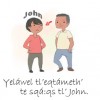
Yeláwel tl’eqtámeth’ te sqá:qs tl’ John means ‘John’s little brother is taller.’ Literally it means ‘More tall (is) the younger.sibling of the John’.
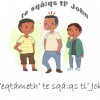
Tl’eqámeth’ te sqá:qs tl’ John means ‘John’s little brother is tall.’ Literally it means ‘Tall is the little.brother of the John’.
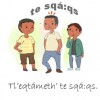
Tl’eqámeth’ te sqá:qs means ‘His little brother is tall.’ Literally it means ‘Tall is the younger.sibling of …’. The English word ‘his’ is not part of the Hal’eméylem, this is just understood from context.
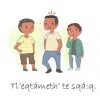
Tl’eqtámeth’ te sqá:q means ‘The little brother is tall’.
